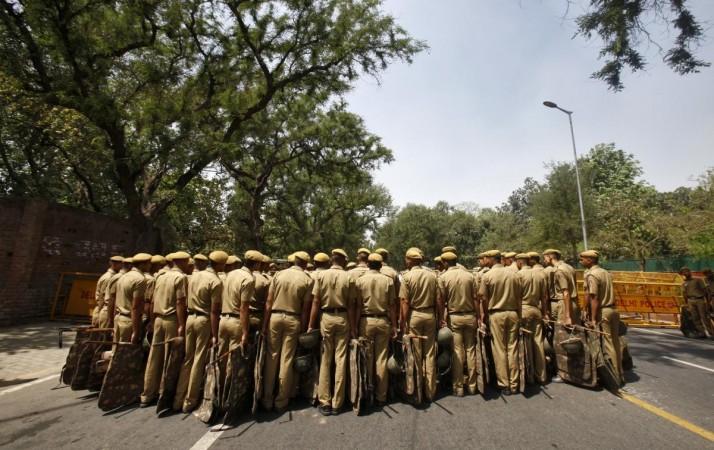The recent episode of a bureaucrat assaulting a citizen in the Surajpur district of Chhattisgarh generated a massive backlash on social media forcing the Chattisgarh government to remove him from the post of the district magistrate.
But such behaviour of government officials especially the Indian Administrative Service is not an aberration. Only a few weeks back, we saw another official in Tripura raiding a marriage ceremony and assaulting the people present in the name of enforcing lockdown norms. The family claimed that marriage was being conducted after taking requisite permissions.
In both cases, officials have defended themselves as doing their duty of enforcing the lockdown order. But that is not the point at all. The issue is that what gave them the right to assault the citizens?
In Chhattisgarh, the DM was seen slapping the boy, breaking his mobile phone, and threatening to file a fake FIR while policemen rushed to beat him with lathis. It was like a feudal lord treating his bonded labour by doing as he pleased instead of an official of a democratic government governing a district. But no one is surprised at this behaviour of the government officials.
![Chattisgarh youth thrashed by cops; district collector apologises after video goes viral [watch]](https://data1.ibtimes.co.in/en/full/761343/chattisgarh-youth-thrashed-by-cops-district-collector-apologises-after-video-goes-viral-watch.jpg?h=450&l=50&t=40)
Ever since the pandemic hit last year, India has slowly slipped into bureaucratic raj, with police and administration acquiring unprecedented powers under the National Disaster Management Act. We have seen the licence-permit raj return with a vengeance with officials deciding what economic activities are permitted, which goods can be delivered and who can venture out at what time and with what conditionalities?
And our bureaucrats have risen to the challenge with the zeal of an inquisitor issuing hundreds of notifications which can put the older generation of bureaucrats under license-permit raj to shame. The language used in these notifications is either incomprehensible or lends itself to multiple interpretations apart from provisions of one notification being contradictory to provisions of the other.
This created unprecedented chaos and confusion, making it impossible for the people to comply with the rules that waded into unbelievable micromanagement levels. It enabled rent-seeking by the bureaucrats and harassment of ordinary people.
Police and administration went on an overdrive to enforce rules and harass people with the threats of fine. FIR was registered against the people for breaking minor rules. People forced to move out for urgent errands during the arbitrary lockdown timings were publicly humiliated, given physical punishments or simply beaten up on roads. Social media is flooded with such punishments.

It has reminded us that Indian bureaucracy is the product of colonial rule and was essentially designed to keep the natives under control and extort taxes. Not much has changed in the oppressive structure and mindset of the bureaucracy armed with the colonial era rules to subjugate and crush people. This tendency has always persisted and comes out without any filter when dealing with the poor. But in the pandemic year, even the middle class is now feeling the heat of the arbitrariness and feudalistic behaviour of the bureaucracy.
There is no effective outside check on the powers and functioning of the bureaucrats. The political executive is too dependent on them esp the IAS cadre, to take any meaningful action against them. It is not for nothing that IAS is called the permanent government in India.
But what is different is that many of the officials esp the younger lot, have publicly spoken out against the Surajpur DM and condemned such behaviour in no uncertain terms. Many have argued that there are good and bad apples in every basket, and this incident should not be taken as representative of the entire bureaucracy.
But it is essentially not the question of individual behaviour. It is a structural problem with too much arbitrariness and power to create a nuisance vested in the bureaucrats. It requires deep reforms in law, rules and regulations, organisational framework, and training. The bureaucracy needs an overhaul to bury its colonial legacy and redefine the equation between citizens and officials.
[This is an opinion piece. The views expressed in this OpEd are those of the author and do not reflect those of International Business Times, India]
















